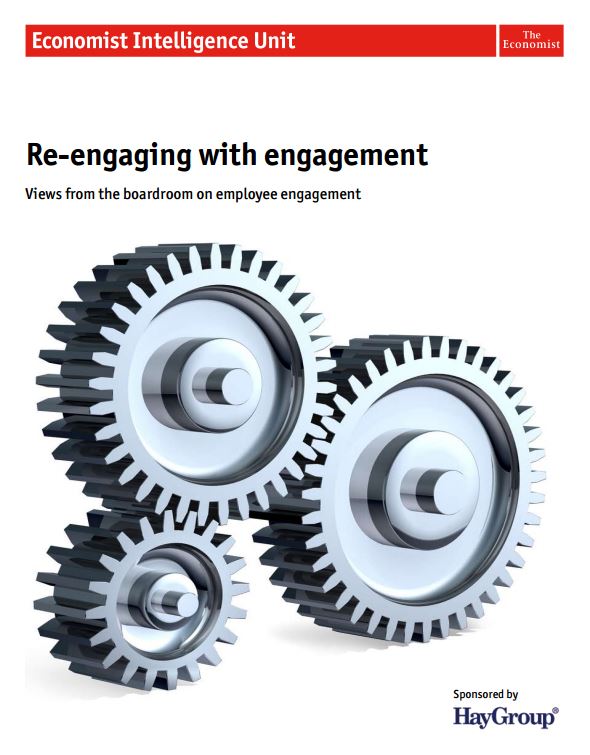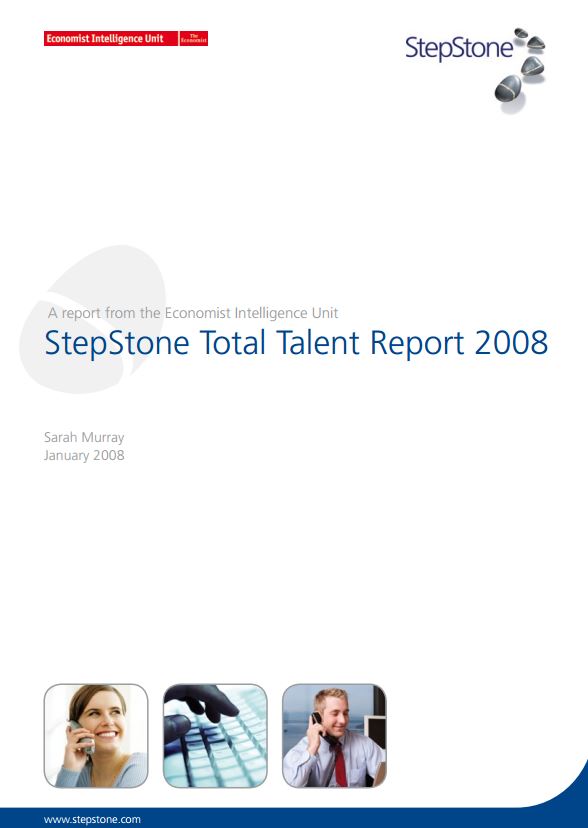Related content

The shifting landscape of global wealth: Future-proofing prosperity in a ti...
In some instances the impact of this shift will be shaped by local factors, such as demographic changes. In other instances this shift will reflect shared characteristics, as demonstrated by the greater popularity of overseas investing among younger high-net-worth individuals (HNWIs) brought up in an era of globalisation. Whatever the drivers, the landscape of wealth is changing—from local to global, and from one focused on returns to one founded on personal values.
Despite rising economic concerns and a tradition of investor home bias in large parts of the world, the new landscape of wealth appears less interested in borders. According to a survey commissioned by RBC Wealth Management and conducted by The Economist Intelligence Unit (EIU), younger HNWIs are substantially more enthusiastic about foreign investing. The U.S. is a particularly high-profile example of a country where a long-standing preference for investments in local markets appears set to be transformed.
Click the thumbnail below to download the global executive summary.
Read additional articles from The EIU with detail on the shifting landscape of global wealth in Asia, Canada, the U.S. and UK on RBC's website.

Fintech in ASEAN
To better understand the opportunities and challenges in developing a fintech business in seven ASEAN markets, The Economist Intelligence Unit conducted wide-ranging desk research supplemented by seven in-depth interviews with executives in Australia and ASEAN.
Download report and watch video interview to learn more.

Risks and opportunities in a changing world
Read our Taxing digital services, U.S. tax reform: The global dimension, & Planning for life after NAFTA articles by clicking the thumbnails below.
Making retirement work-Traditional Chinese
Related content

The shifting landscape of global wealth: Future-proofing prosperity in a ti...
In some instances the impact of this shift will be shaped by local factors, such as demographic changes. In other instances this shift will reflect shared characteristics, as demonstrated by the greater popularity of overseas investing among younger high-net-worth individuals (HNWIs) brought up in an era of globalisation. Whatever the drivers, the landscape of wealth is changing—from local to global, and from one focused on returns to one founded on personal values.
Despite rising economic concerns and a tradition of investor home bias in large parts of the world, the new landscape of wealth appears less interested in borders. According to a survey commissioned by RBC Wealth Management and conducted by The Economist Intelligence Unit (EIU), younger HNWIs are substantially more enthusiastic about foreign investing. The U.S. is a particularly high-profile example of a country where a long-standing preference for investments in local markets appears set to be transformed.
Click the thumbnail below to download the global executive summary.
Read additional articles from The EIU with detail on the shifting landscape of global wealth in Asia, Canada, the U.S. and UK on RBC's website.

Fintech in ASEAN
To better understand the opportunities and challenges in developing a fintech business in seven ASEAN markets, The Economist Intelligence Unit conducted wide-ranging desk research supplemented by seven in-depth interviews with executives in Australia and ASEAN.
Download report and watch video interview to learn more.

Risks and opportunities in a changing world
Read our Taxing digital services, U.S. tax reform: The global dimension, & Planning for life after NAFTA articles by clicking the thumbnails below.
Making retirement work
More from this series
Related content

The shifting landscape of global wealth: Future-proofing prosperity in a ti...
In some instances the impact of this shift will be shaped by local factors, such as demographic changes. In other instances this shift will reflect shared characteristics, as demonstrated by the greater popularity of overseas investing among younger high-net-worth individuals (HNWIs) brought up in an era of globalisation. Whatever the drivers, the landscape of wealth is changing—from local to global, and from one focused on returns to one founded on personal values.
Despite rising economic concerns and a tradition of investor home bias in large parts of the world, the new landscape of wealth appears less interested in borders. According to a survey commissioned by RBC Wealth Management and conducted by The Economist Intelligence Unit (EIU), younger HNWIs are substantially more enthusiastic about foreign investing. The U.S. is a particularly high-profile example of a country where a long-standing preference for investments in local markets appears set to be transformed.
Click the thumbnail below to download the global executive summary.
Read additional articles from The EIU with detail on the shifting landscape of global wealth in Asia, Canada, the U.S. and UK on RBC's website.

Fintech in ASEAN
To better understand the opportunities and challenges in developing a fintech business in seven ASEAN markets, The Economist Intelligence Unit conducted wide-ranging desk research supplemented by seven in-depth interviews with executives in Australia and ASEAN.
Download report and watch video interview to learn more.

Risks and opportunities in a changing world
Read our Taxing digital services, U.S. tax reform: The global dimension, & Planning for life after NAFTA articles by clicking the thumbnails below.
Making retirement work
Related content

The shifting landscape of global wealth: Future-proofing prosperity in a ti...
In some instances the impact of this shift will be shaped by local factors, such as demographic changes. In other instances this shift will reflect shared characteristics, as demonstrated by the greater popularity of overseas investing among younger high-net-worth individuals (HNWIs) brought up in an era of globalisation. Whatever the drivers, the landscape of wealth is changing—from local to global, and from one focused on returns to one founded on personal values.
Despite rising economic concerns and a tradition of investor home bias in large parts of the world, the new landscape of wealth appears less interested in borders. According to a survey commissioned by RBC Wealth Management and conducted by The Economist Intelligence Unit (EIU), younger HNWIs are substantially more enthusiastic about foreign investing. The U.S. is a particularly high-profile example of a country where a long-standing preference for investments in local markets appears set to be transformed.
Click the thumbnail below to download the global executive summary.
Read additional articles from The EIU with detail on the shifting landscape of global wealth in Asia, Canada, the U.S. and UK on RBC's website.

Fintech in ASEAN
To better understand the opportunities and challenges in developing a fintech business in seven ASEAN markets, The Economist Intelligence Unit conducted wide-ranging desk research supplemented by seven in-depth interviews with executives in Australia and ASEAN.
Download report and watch video interview to learn more.

Risks and opportunities in a changing world
Read our Taxing digital services, U.S. tax reform: The global dimension, & Planning for life after NAFTA articles by clicking the thumbnails below.
Global education 20/20: What role for the private sector?
Related content

Fostering exploration and excellence in 21st century schools

The giving chain: How philanthropy is driving progress in Asian education
Education is widely seen as the main driver of long-term social impact in Asia, and educational philanthropists are increasingly targeting innovative projects that help marginalised and deprived communities.
How to contribute wisely to education in Asia? Read the report >>
Sparking economic progress through education
Through Q&As with luminaries in a number of sectors across the world, interviews aim to surface insights for policy makers, business leaders and other stakeholders as they consider actions to improve the quality of, and access to, education, to fortify their country’s economic, social and geopolitical fabric.
The series is supported by The International Commission on Financing Global Education Opportunity, which just presented a report urging governments to expand access to education to the UN Secretary-General, Mr Ban Ki-moon, and the Commission Co-Convenors during the UN General Assembly in New York.
The report, entitled "The Learning Generation: Investing in Education for a Changing World,” underscores the importance of quality education to address the social, economic, and security challenges of our time. For more on the report please go to educationcommission.org
Re-engaging with engagement
Related content

Fostering exploration and excellence in 21st century schools

The giving chain: How philanthropy is driving progress in Asian education
Education is widely seen as the main driver of long-term social impact in Asia, and educational philanthropists are increasingly targeting innovative projects that help marginalised and deprived communities.
How to contribute wisely to education in Asia? Read the report >>
Sparking economic progress through education
Through Q&As with luminaries in a number of sectors across the world, interviews aim to surface insights for policy makers, business leaders and other stakeholders as they consider actions to improve the quality of, and access to, education, to fortify their country’s economic, social and geopolitical fabric.
The series is supported by The International Commission on Financing Global Education Opportunity, which just presented a report urging governments to expand access to education to the UN Secretary-General, Mr Ban Ki-moon, and the Commission Co-Convenors during the UN General Assembly in New York.
The report, entitled "The Learning Generation: Investing in Education for a Changing World,” underscores the importance of quality education to address the social, economic, and security challenges of our time. For more on the report please go to educationcommission.org
Fostering innovation-led clusters
Key Findings
- Government has a crucial role to play; so does the market.
Although many advocate a wholly “bottom-up” approach to cluster development, it is clear that many clusters have succeeded on the back of government intervention. What is difficult to get right is the scale and type of support: a heavy hand can stifle progress, while too little intervention can lead to a lack of vital support. But while some clusters might work without government backing, none will work without market forces.
Related content

Fostering exploration and excellence in 21st century schools

The giving chain: How philanthropy is driving progress in Asian education
Education is widely seen as the main driver of long-term social impact in Asia, and educational philanthropists are increasingly targeting innovative projects that help marginalised and deprived communities.
How to contribute wisely to education in Asia? Read the report >>
Sparking economic progress through education
Through Q&As with luminaries in a number of sectors across the world, interviews aim to surface insights for policy makers, business leaders and other stakeholders as they consider actions to improve the quality of, and access to, education, to fortify their country’s economic, social and geopolitical fabric.
The series is supported by The International Commission on Financing Global Education Opportunity, which just presented a report urging governments to expand access to education to the UN Secretary-General, Mr Ban Ki-moon, and the Commission Co-Convenors during the UN General Assembly in New York.
The report, entitled "The Learning Generation: Investing in Education for a Changing World,” underscores the importance of quality education to address the social, economic, and security challenges of our time. For more on the report please go to educationcommission.org
Up or out
Related content

Fostering exploration and excellence in 21st century schools

The giving chain: How philanthropy is driving progress in Asian education
Education is widely seen as the main driver of long-term social impact in Asia, and educational philanthropists are increasingly targeting innovative projects that help marginalised and deprived communities.
How to contribute wisely to education in Asia? Read the report >>
Sparking economic progress through education
Through Q&As with luminaries in a number of sectors across the world, interviews aim to surface insights for policy makers, business leaders and other stakeholders as they consider actions to improve the quality of, and access to, education, to fortify their country’s economic, social and geopolitical fabric.
The series is supported by The International Commission on Financing Global Education Opportunity, which just presented a report urging governments to expand access to education to the UN Secretary-General, Mr Ban Ki-moon, and the Commission Co-Convenors during the UN General Assembly in New York.
The report, entitled "The Learning Generation: Investing in Education for a Changing World,” underscores the importance of quality education to address the social, economic, and security challenges of our time. For more on the report please go to educationcommission.org
Total Talent Report 2008
Related content

Steering through collaboration: CFOs driving new priorities for the future
It is well established that the modern CFO has a more strategic role to play in a business, but a clear action plan to achieve this is lacking. A key element of this is helping the business to deal with change. Some changes are planned: launching a new product or service, setting up operations in a new region or acquiring a competitor. Others may be unexpected: a major disruption to supply-chain operations, the emergence of new regulation and legal reporting requirements or the unpredictable impacts of global economic uncertainty.
Either way, when asked about the biggest challenges they face in executing their day-to-day activities, change is a recurring theme, according to a new survey of 800 CFOs and senior finance executives, conducted by The Economist Intelligence Unit. Managing unexpected changes to financial forecasts and adapting finance processes to rapidly evolving business models are top of mind.
Managing unexpected changes to financial forecasts and adapting finance processes to rapidly evolving business models are top challenges finance executives face in executing their day to-day activities.
Finance executives are also concerned with identifying how to align strategic, financial and operational plans towards common objectives and meaningfully analysing data across business units and regions. “All functions are working to meet these challenges and, as a finance head, we have to have visibility across all functions, how they are progressing [towards meeting goals] and ensuring that their direction is in line with overall strategic goals,” says Lalit Malik, CFO of Dabur, an Indian consumer goods manufacturer. It is incumbent upon CFOs therefore to be prepared not only to help their own function navigate uncharted territory, but the rest of the business too. That means breaking down the silos that commonly exist in organisations, in order to collaborate closely across functions, sharing information and data in the pursuit of common objectives.
All functions are working to meet these challenges and, as a finance head, we have to have visibility across all functions, how they are progressing [towards meeting goals] and ensuring that their direction is in line with overall strategic goals - Lalit Malik, CFO of Dabur, an Indian consumer goods manufacturer.
The clear custodian of collaboration
There are a number of reasons why the role of leading cross-company collaboration around steering should fall to the CFO and their team. First, through the activities of budgeting, the finance function is the custodian of the clear, quantitative expression of management expectations and determines how resources such as cash and people will be allocated in order to achieve them. In our survey, 90% of respondents say that finance should facilitate collaborative enterprise planning to ensure that operational plans are aligned with financial and strategic plans.
Second, through performance management, the finance function is the gatekeeper for critical data that illustrate how well—or otherwise—the company is rising to the challenge of change. That includes data relating to sales, supply chain and delivery, which need to be reported back to the business in ways that help drive improved decisionmaking. Our survey reveals that companies in which finance executives feel empowered to drive strategic decisions across business functions are more likely to report a higher financial performance in fiscal year 2016/17 and 2017/18 and anticipate higher growth rates for 2019/20.
Download Complete Executive Summary PDF

Transforming data into action
As businesses generate and manage vast amounts of data, companies have more opportunities to gather data, incorporate insights into business strategy and continuously expand access to data across the organisation. Doing so effectively—leveraging data for strategic objectives—is often easier said than done, however. This report, Transforming data into action: the business outlook for data governance, explores the business contributions of data governance at organisations globally and across industries, the challenges faced in creating useful data governance policies and the opportunities to improve such programmes. Learn more by downloading our whitepaper below.

Rethinking professional services in an age of disruption
Impact finance: An interview with David Hutchinson
15480
Related content

Resetting the agenda: How ESG is shaping our future
The Covid-19 pandemic has exposed a wealth of interconnections – between ecological and human wellbeing, between economic and environmental fragility, between social inequality and health outcomes, and more. The consequences of these connections are now filtering through, reshaping our society and economy.
In this setting, the need to integrate environmental, social and governance (ESG) factors when investing has become even more critical. Institutional investors must employ ESG not just to mitigate risks and identify opportunities, but to engage with companies to bring about the positive change needed to drive a sustainable economic recovery in the post-Covid world.
In order to understand how ESG could be both a new performance marker and a growth driver in this environment, as well as how institutional investors are using ESG to make investment decisions and to assess their own performance, The Economist Intelligence Unit (EIU), sponsored by UBS, surveyed 450 institutional investors working in asset and wealth management firms, corporate pension funds, endowment funds, family offices, government agencies, hedge funds, insurance companies, pension funds, sovereign wealth funds and reinsurers in North America, Europe and Asia-Pacific.
Download the report and infographic to learn more.

Charting the course for ocean sustainability in the Indian Ocean Rim
Charting the course for ocean sustainability in the Indian Ocean Rim is an Economist Intelligence Unit report, sponsored by Environment Agency Abu Dhabi and the Department of Economic Development Abu Dhabi, which highlights key ocean challenges facing the Indian Ocean Rim countries and showcases initiatives undertaken by governments and the private sector in the region to address these challenges.
Click here to view the report.

Fixing Asia's food system
The urgency for change in Asia's food system comes largely from the fact that Asian populations are growing, urbanising and changing food tastes too quickly for many of the regions’ food systems to cope with. Asian cities are dense and are expected to expand by 578m people by 2030. China, Indonesia and India will account for three quarters of these new urban dwellers.
To study what are the biggest challenges for change, The Economist Intelligence Unit (EIU) surveyed 400 business leaders in Asia’s food industry. According to the respondents, 90% are concerned about their local food system’s ability to meet food security needs, but only 32% feel their organisations have the ability to determine the success of their food systems. Within this gap is a shifting balance of responsibility between the public and private sectors, a tension that needs to and can be strategically addressed.







